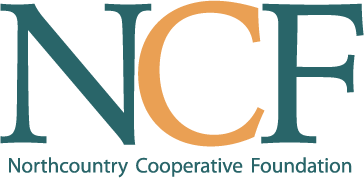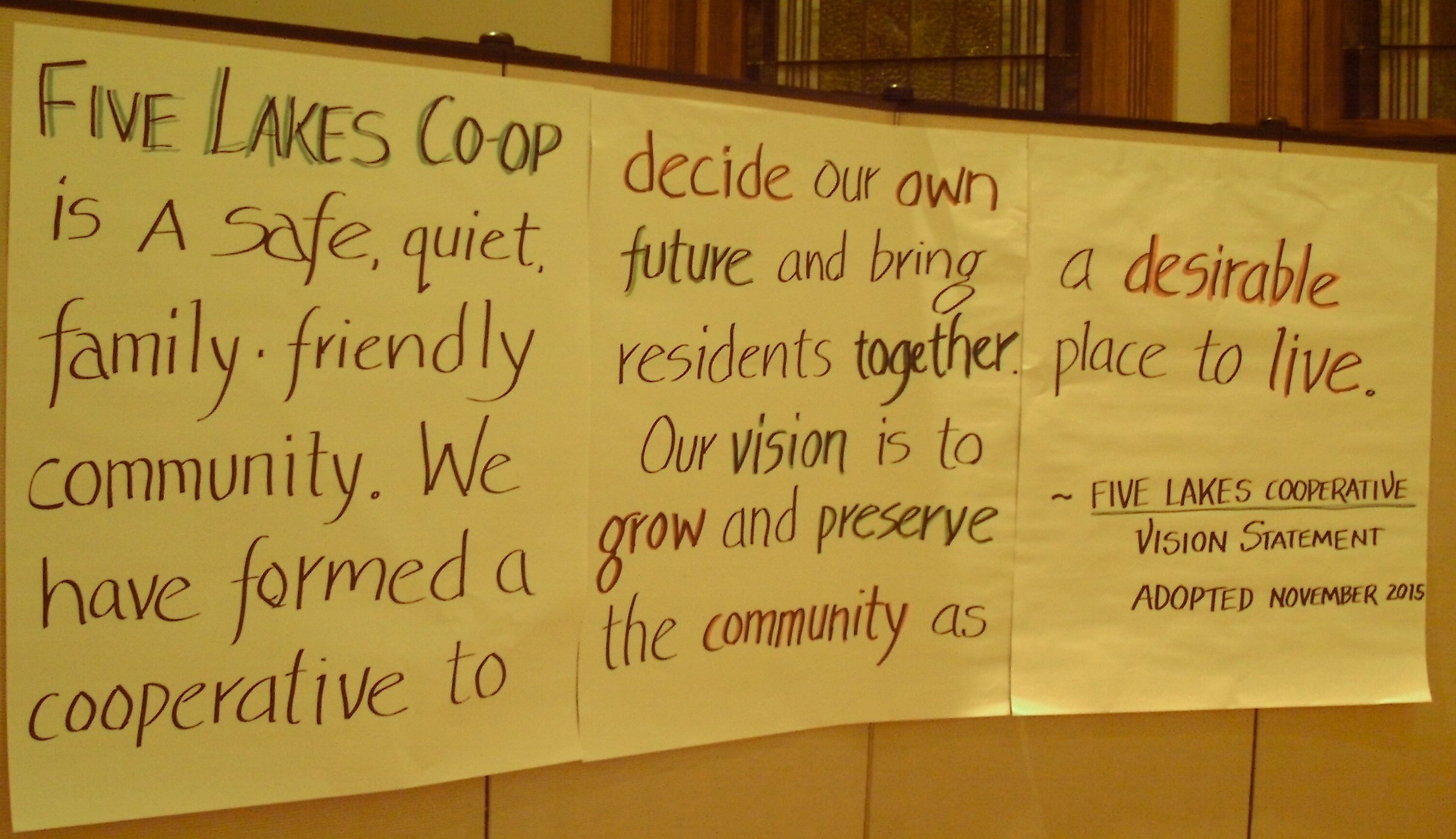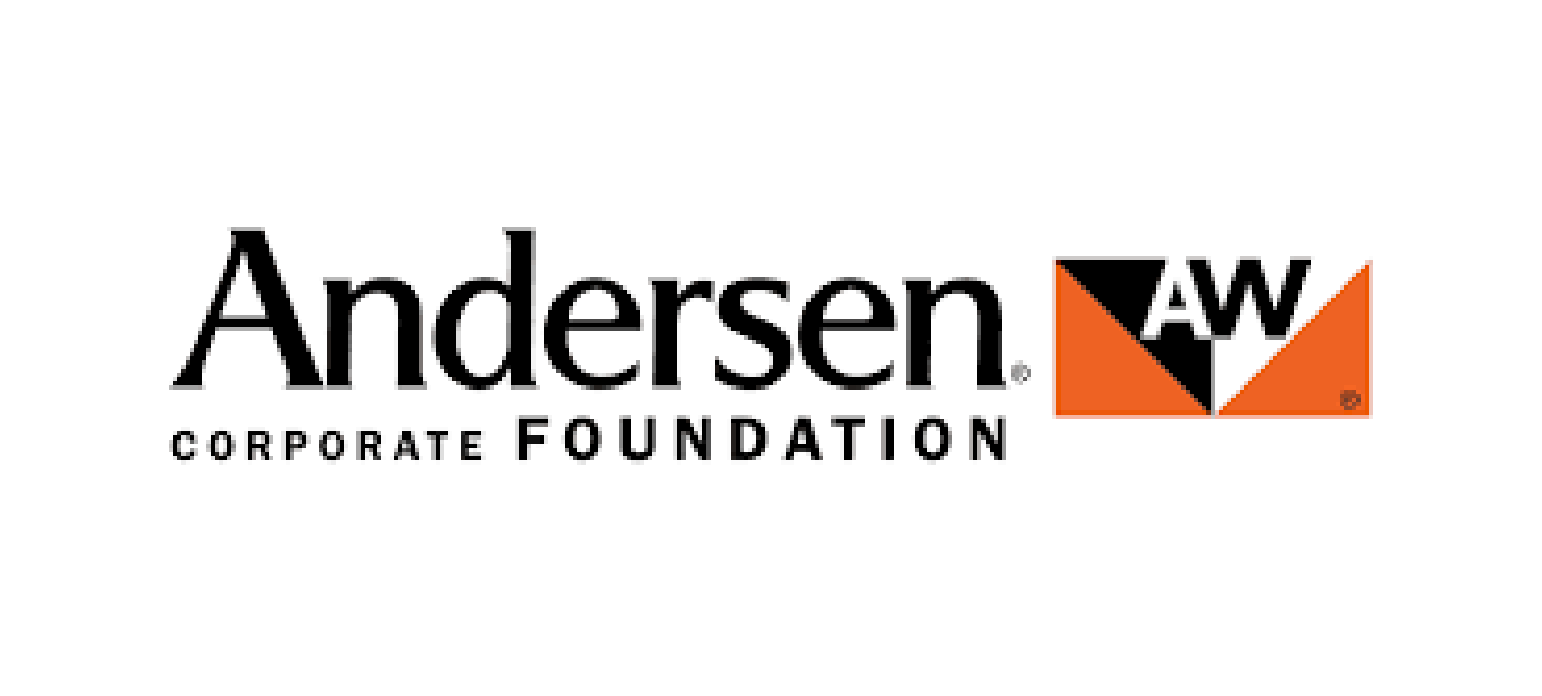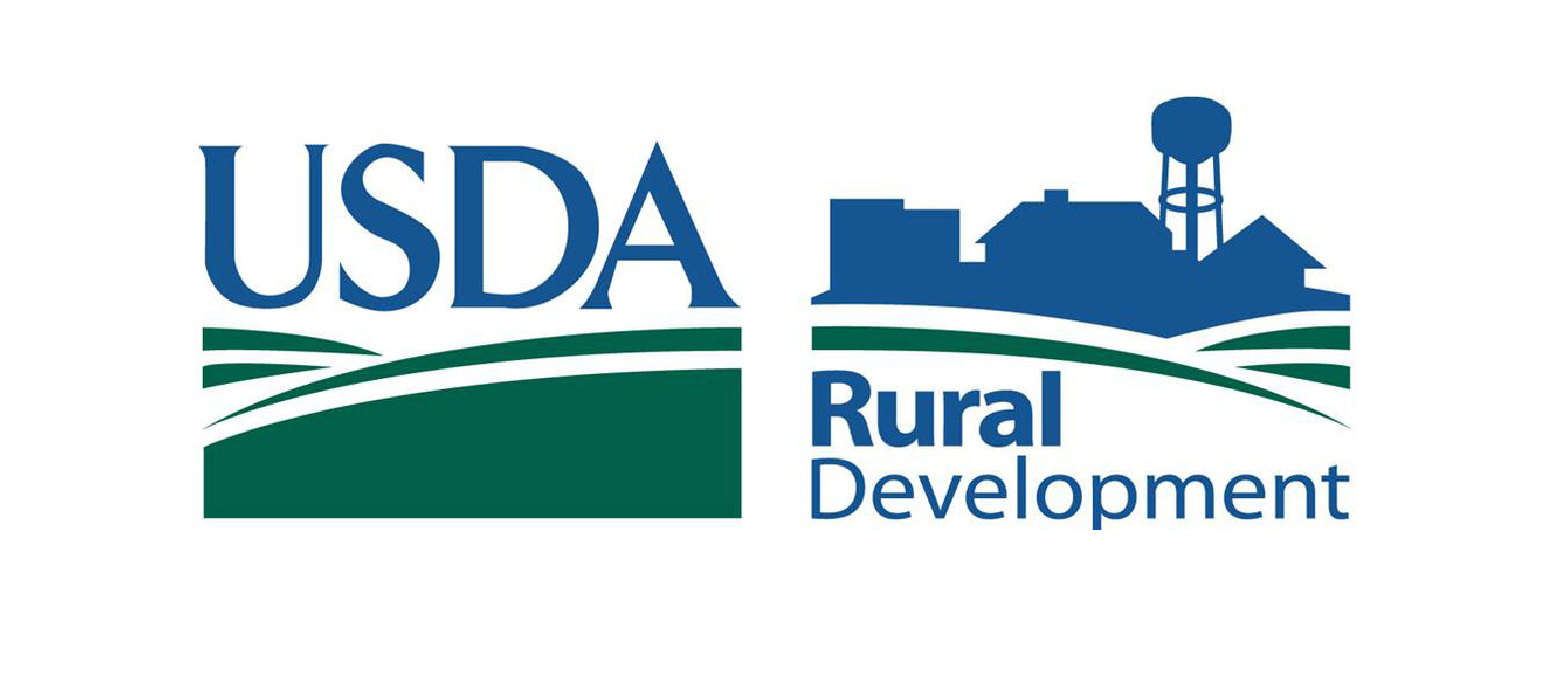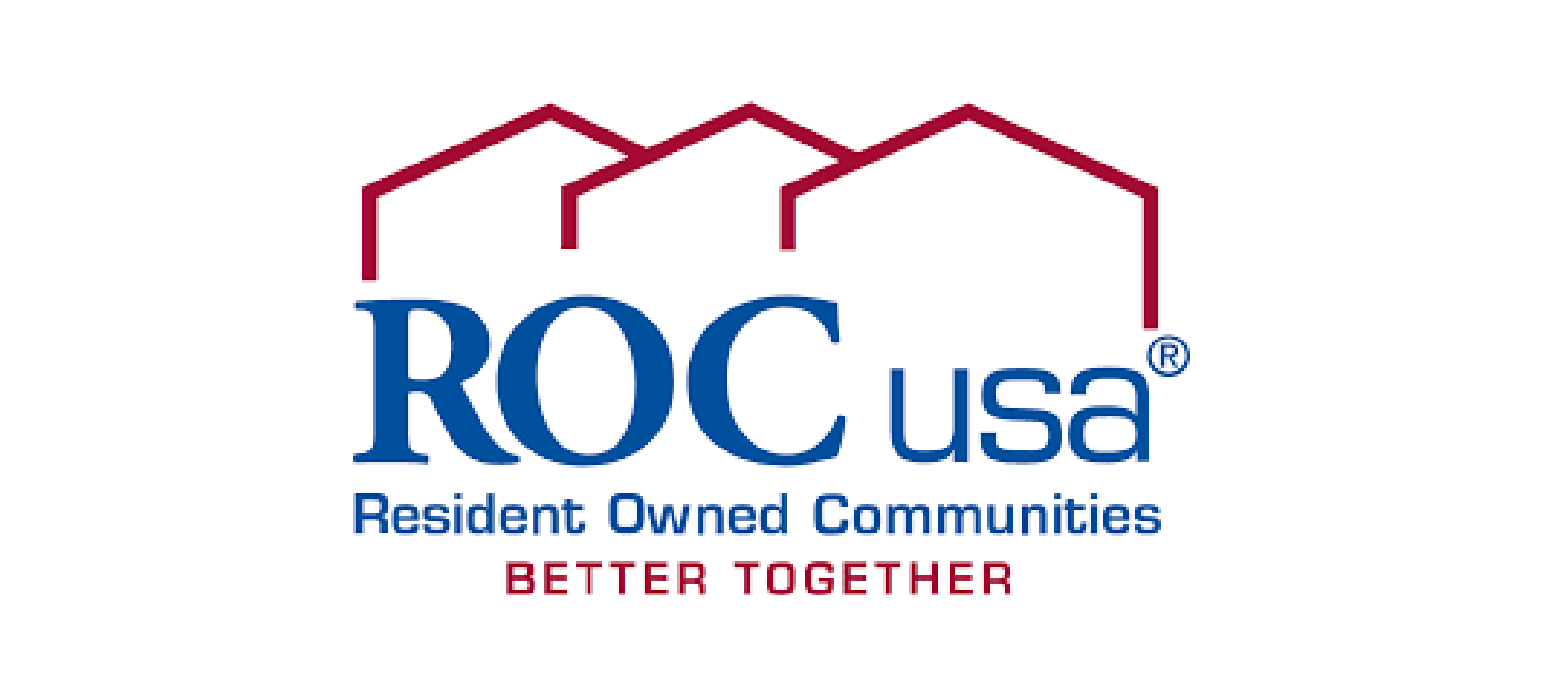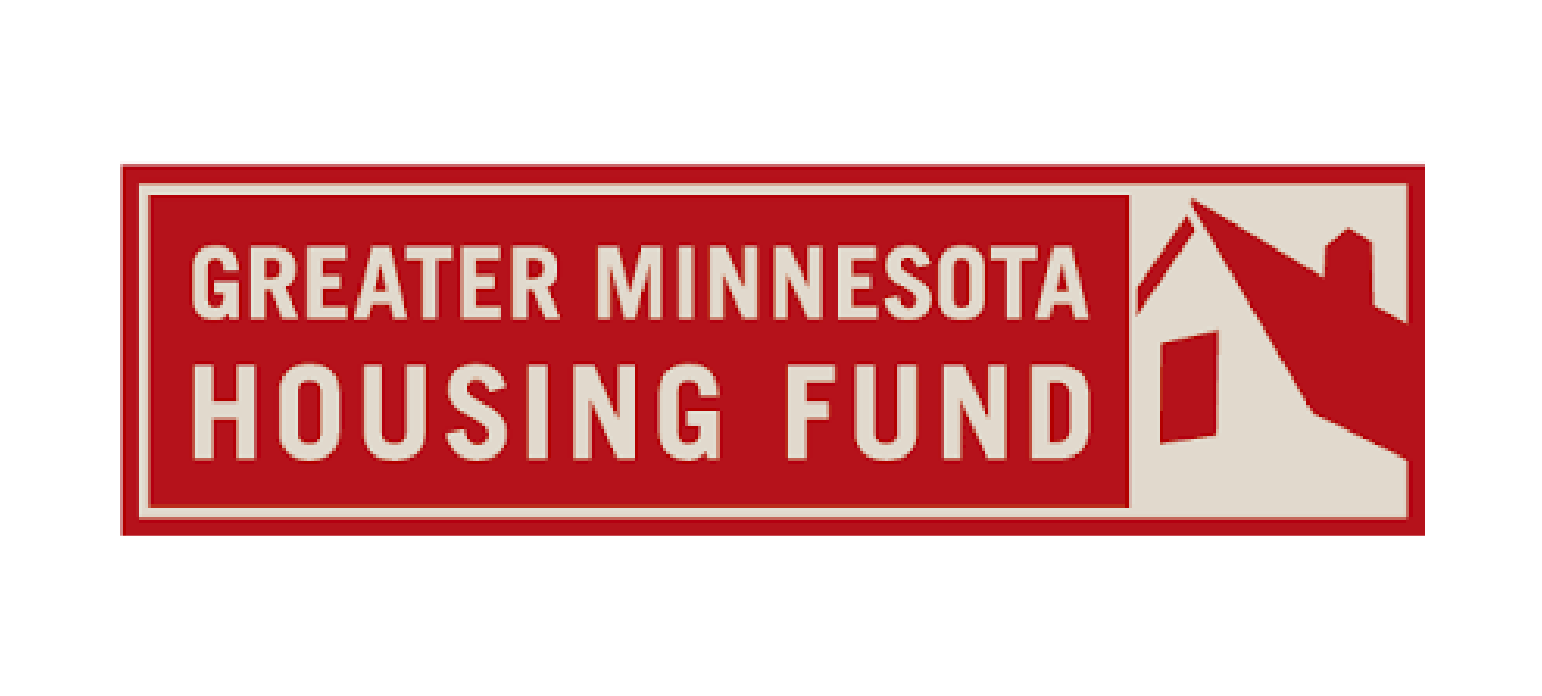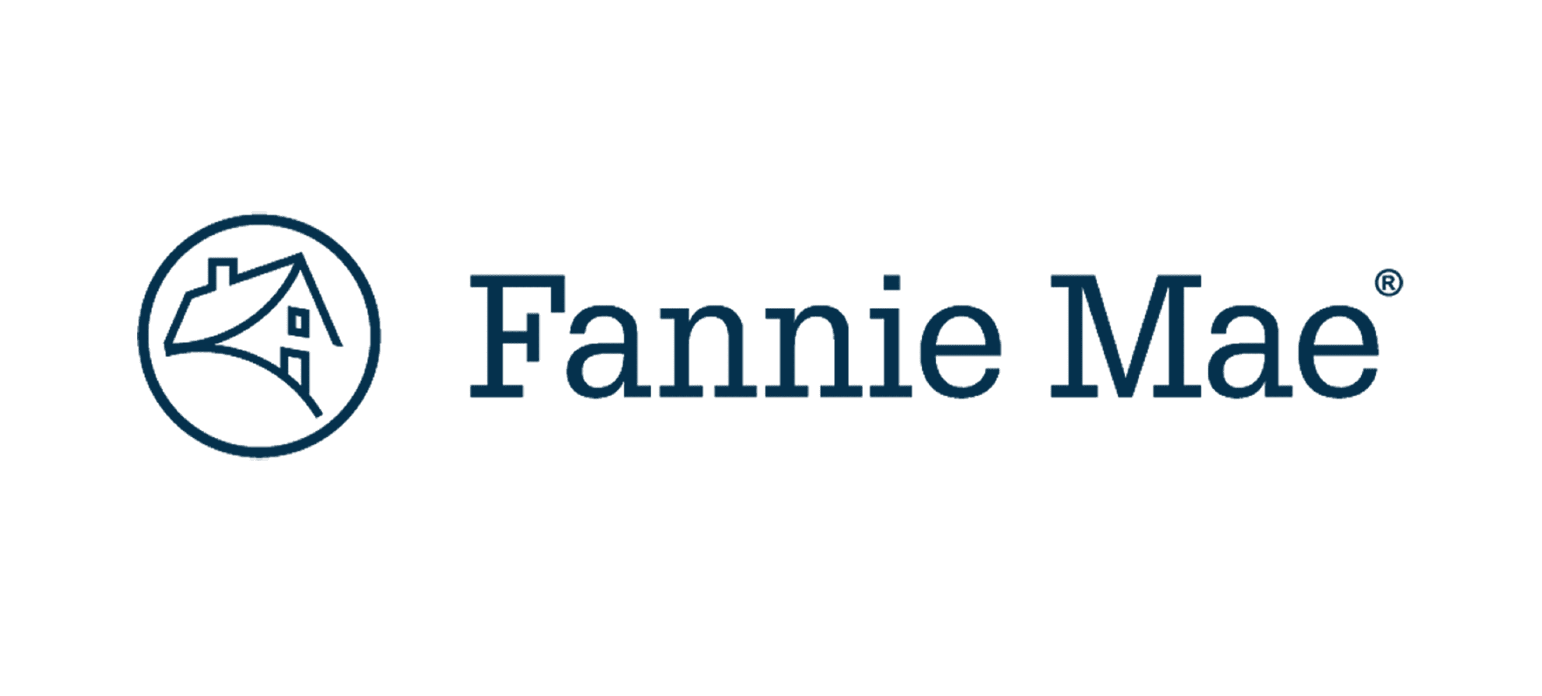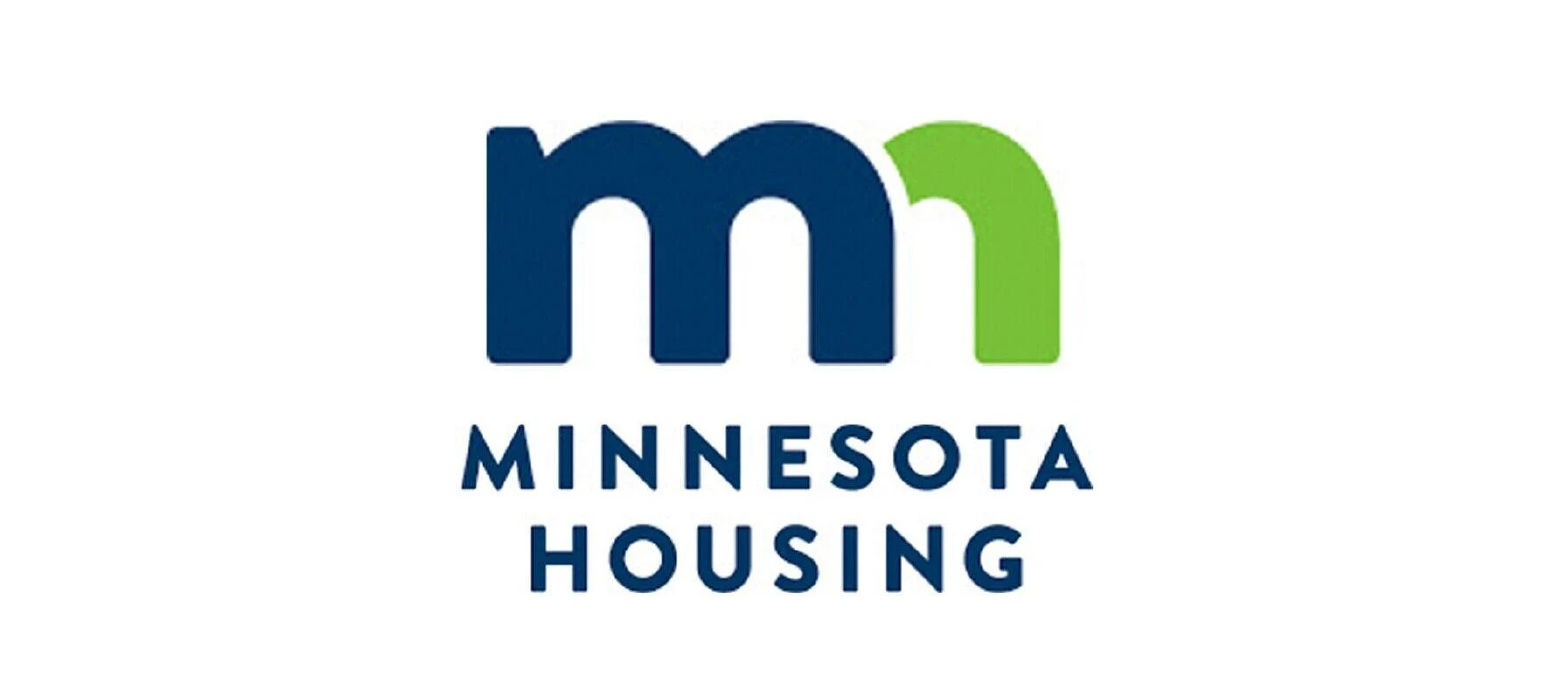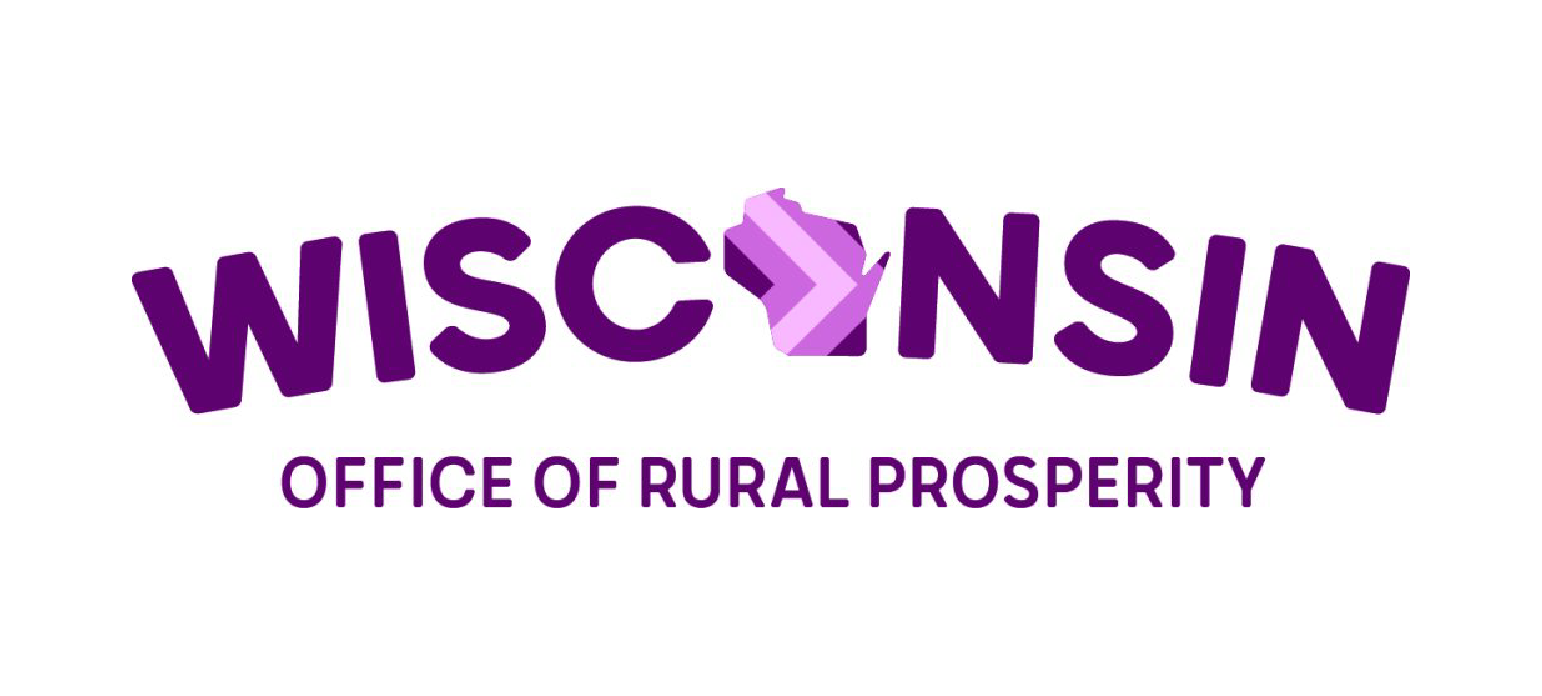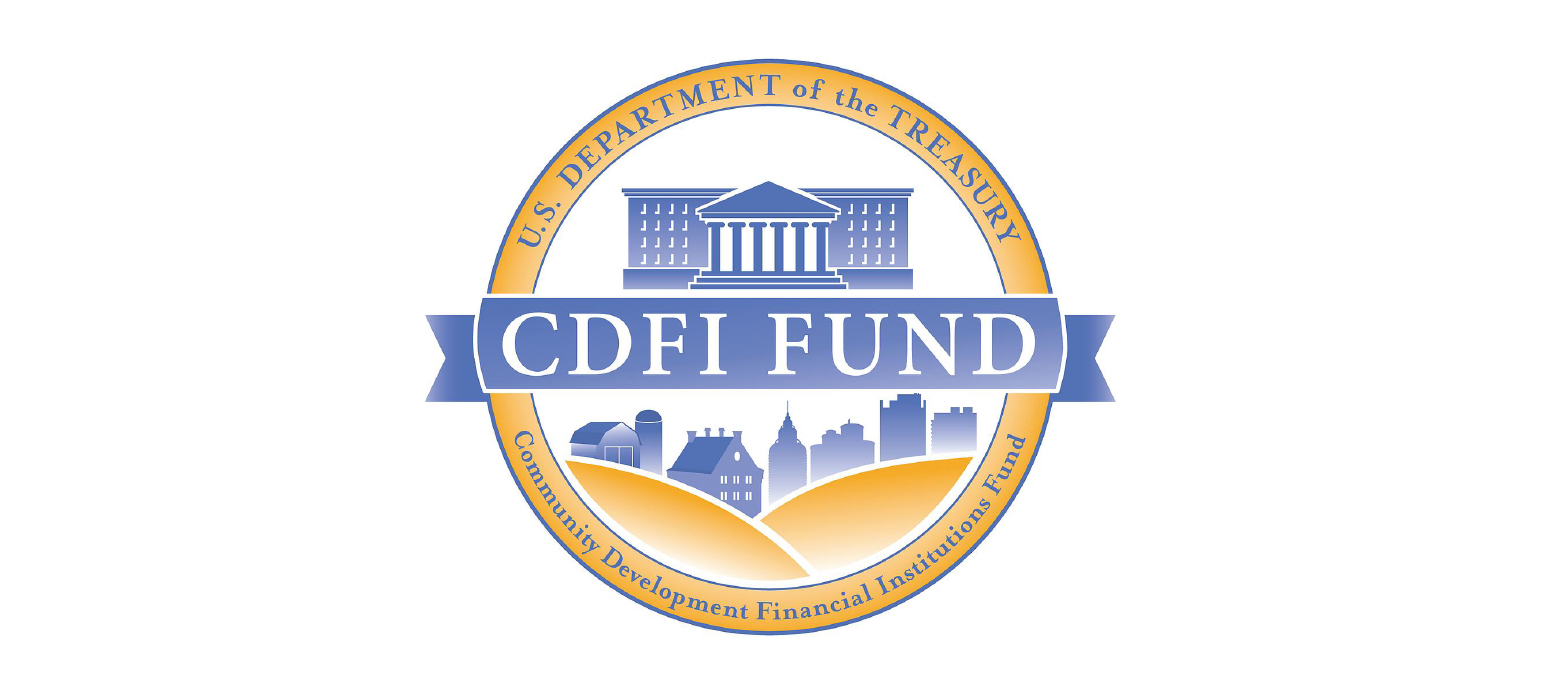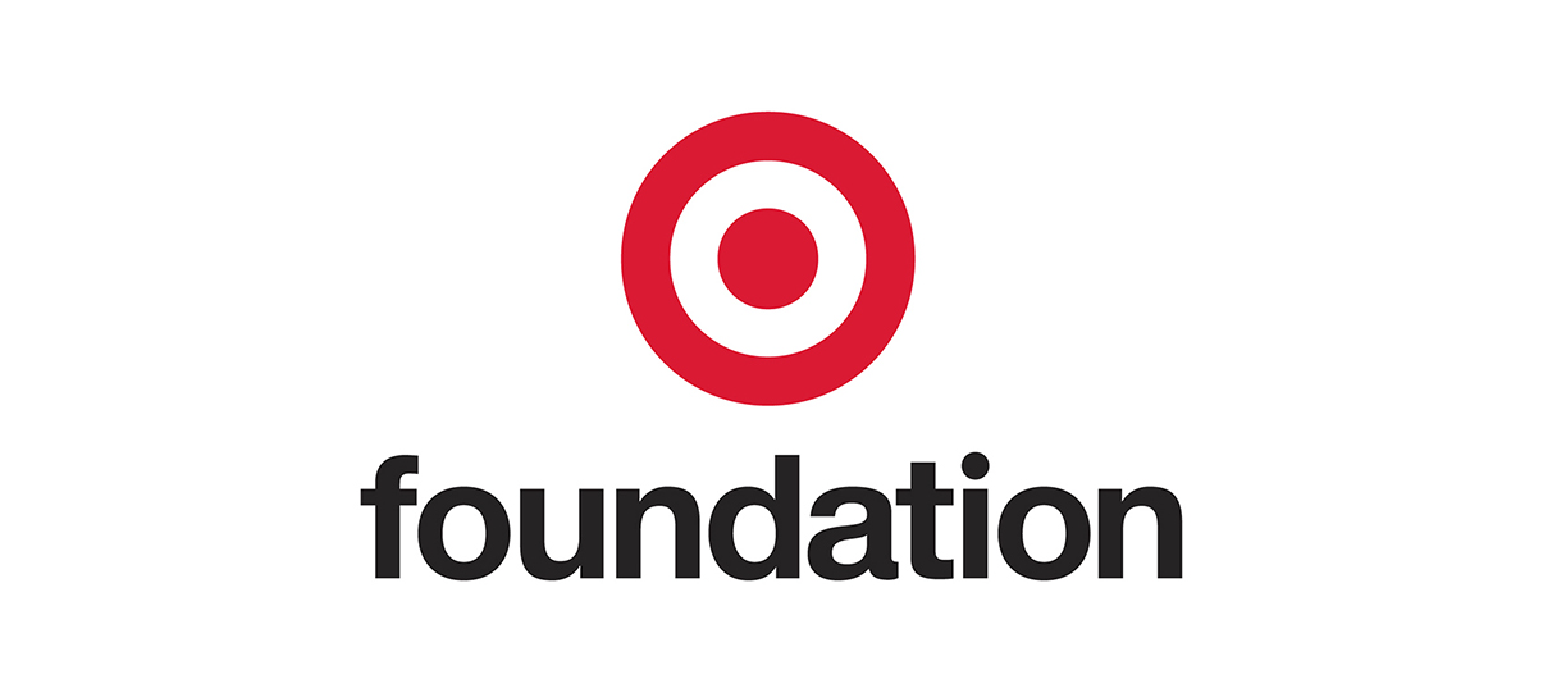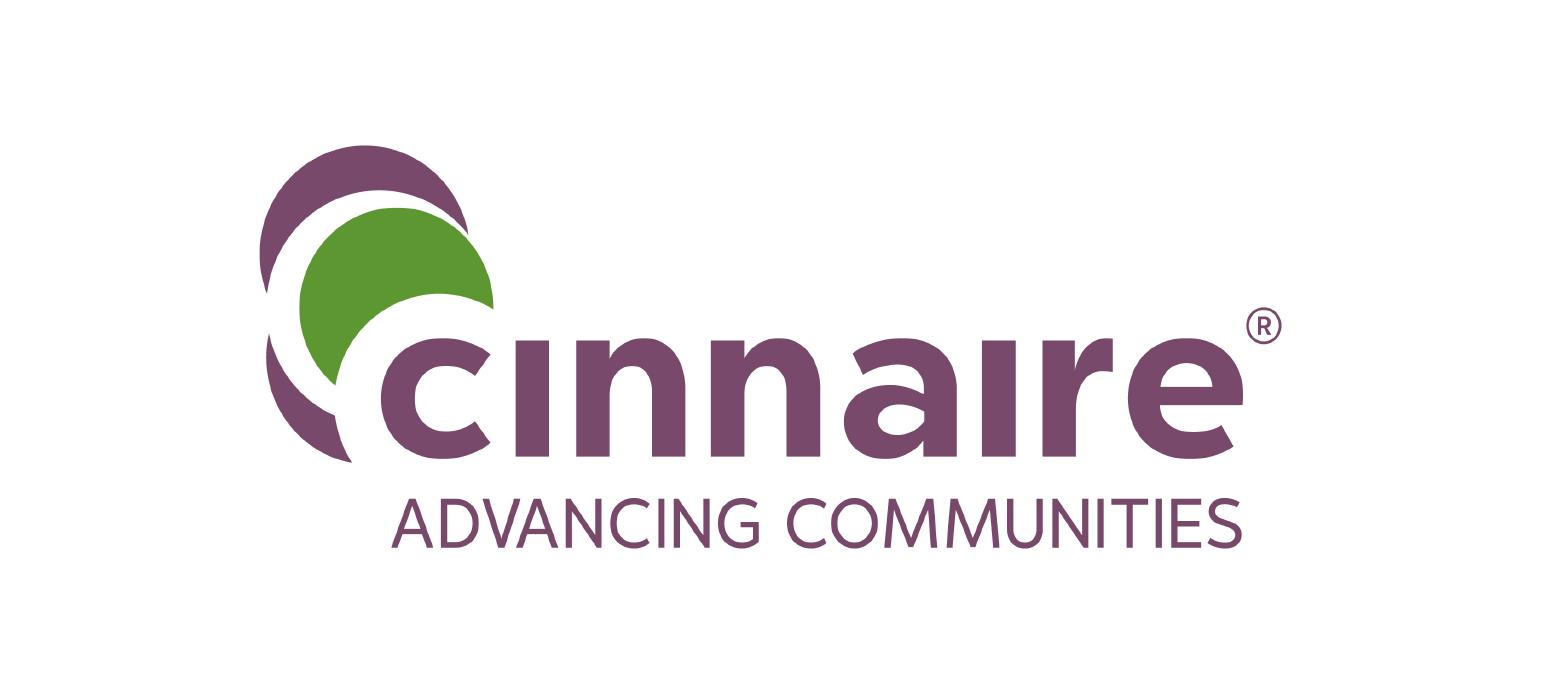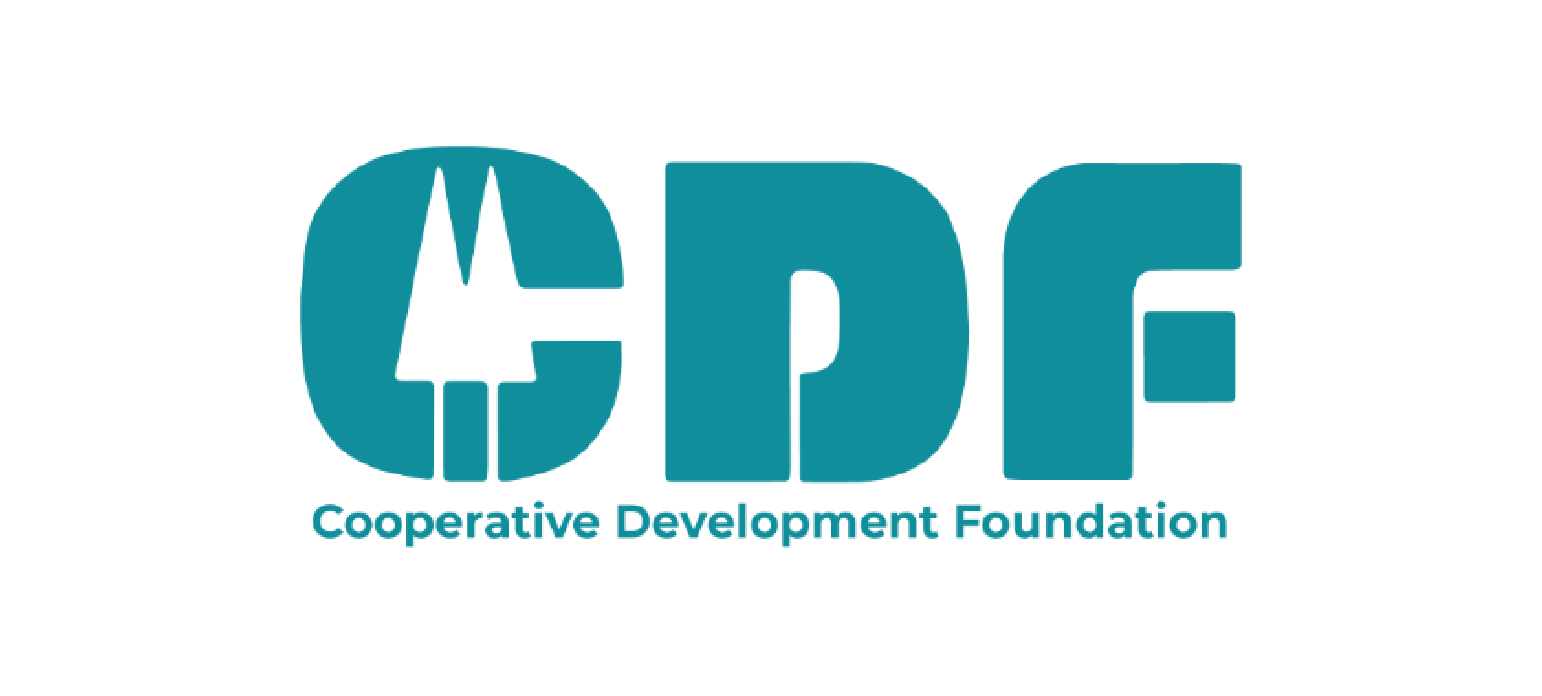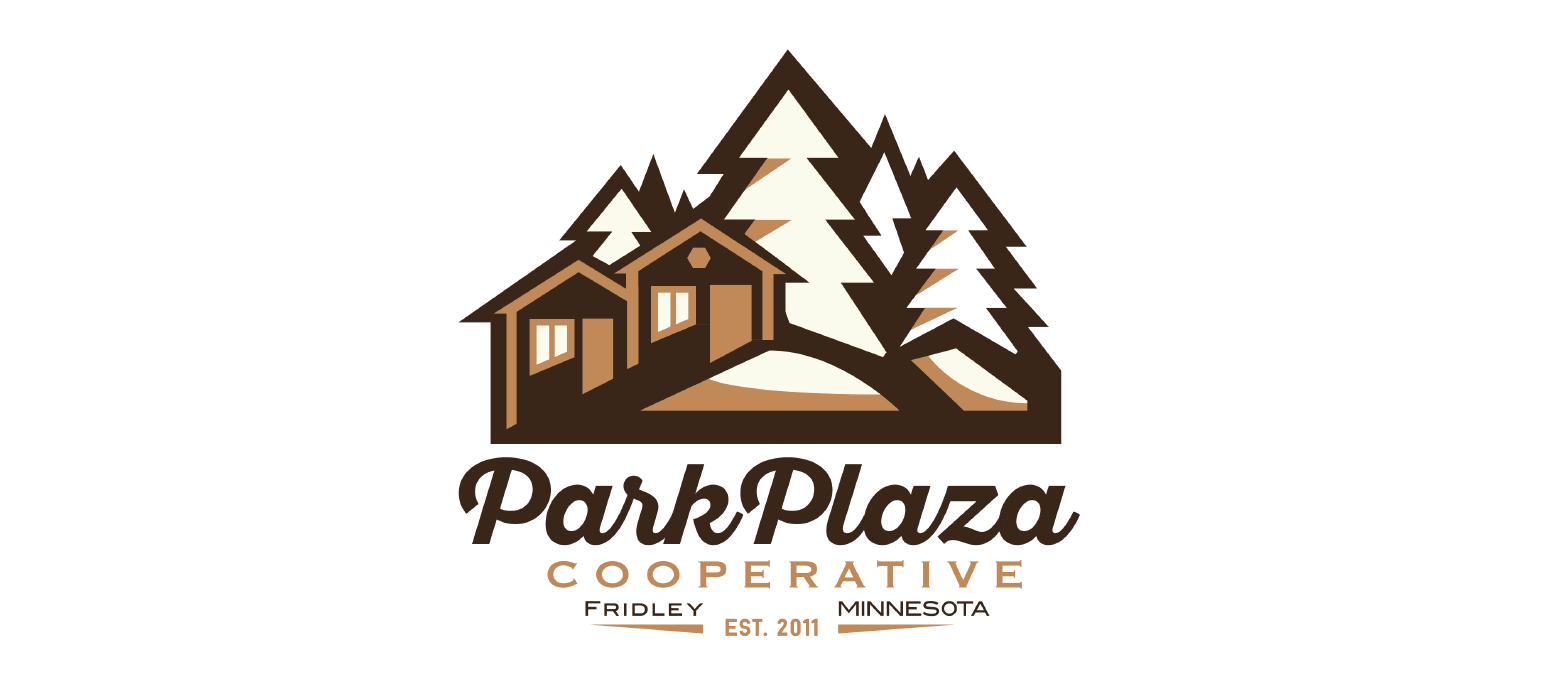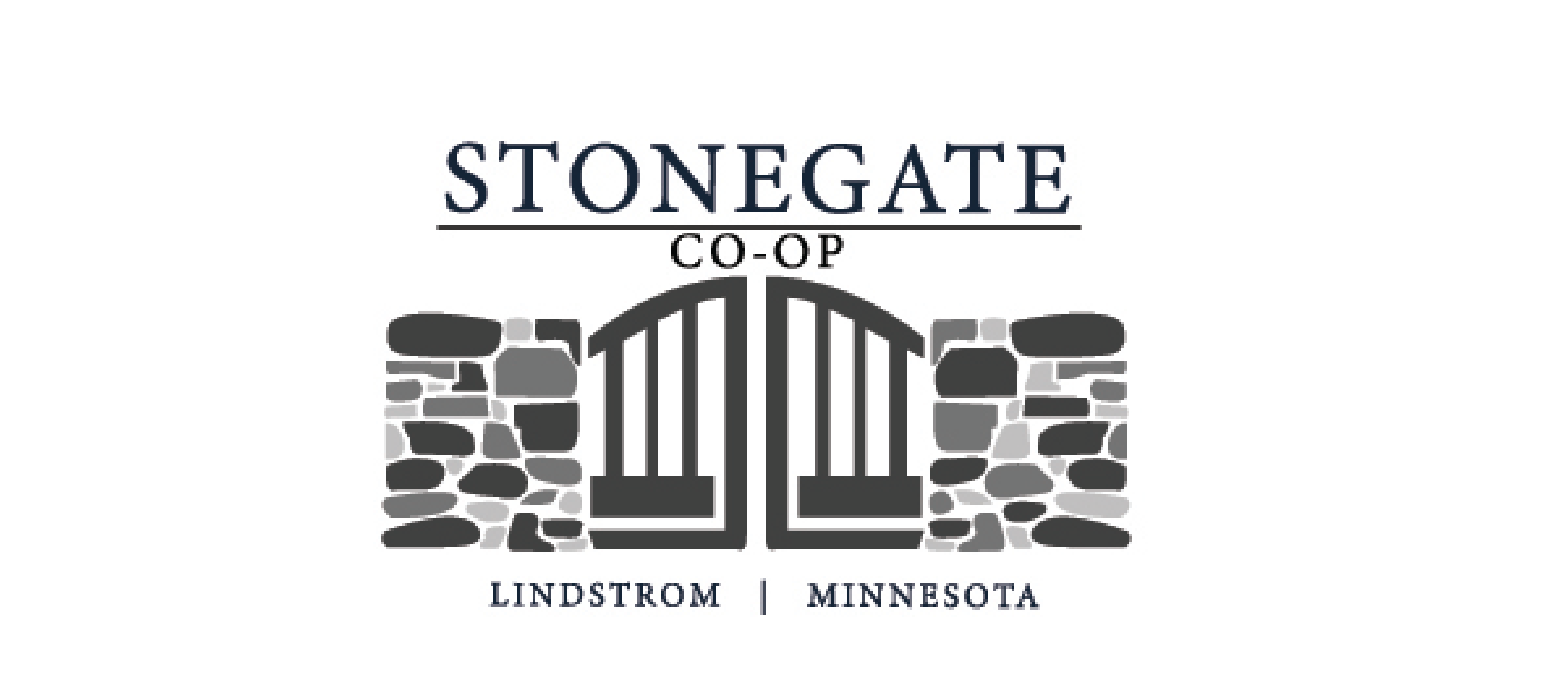Picture above is the vision statement for Five Lakes Cooperative. NCF helped the residents of Five Lakes convert their 94-unit manufactured home community to a cooperative in 2014.
We hear lots of myths about cooperatives, and thought it was time to set the record straight. This post is part of our annual campaign — the theme this year is “myths and legends.”
Myth #1 – Cooperatives are nonprofits
Co-ops are businesses, plain and simple. They have to make money to function and are not eligible for most grants. Co-ops face the same challenges as other businesses!
Myth #2 – Everyone needs to be involved in every decision
Co-ops can have the same vertical hierarchy of other businesses. While cooperatives are delightfully democratic, there is no need for consensus on most decisions.
Myth #3 – Co-ops are inefficient
There is nothing inefficient about the ownership structure of a cooperative. Co-ops often have strong leaders empowered to respond to challenges by making in-the-moment executive decisions (stay tuned for inspirational stories in the coming weeks!)
Myth #4 – Cooperatives aren’t real businesses
Co-ops are businesses, so they need to maintain positive or neutral cash flow (or take on debt) in order to continue existing. Cooperatives have shareholder owners just like publicly traded businesses, but instead of the shareholder owners being motivated exclusively by profit, they are motivated by their interests as residents, employees, or customers of the cooperative.
Myth #5 – Co-ops can’t work everywhere
Cooperatives can form in any situation whenever a group of employees, residents, or consumers are willing to share ownership of a corporation. Co-ops, especially limited equity cooperatives like the kind NCF helps establish, can easily scale, as they do not require a concentration of wealth to get started.
In short, co-ops are, in many ways, just like any other business. The key difference between a cooperative and other business types is that the people in charge of a cooperative were elected by the employees, residents, or customers (depending on the type of co-op), and they can be voted out if they act against the best interests of the majority.
Our work in supporting manufactured home cooperatives is so important because residents are the best people to decide how to run their communities. Please consider giving what you can today to support our important work of preserving affordable housing through cooperative ownership. Together, we can permanently preserve affordable housing and support dignified, democratically-controlled housing for Minnesota and Wisconsin households.
